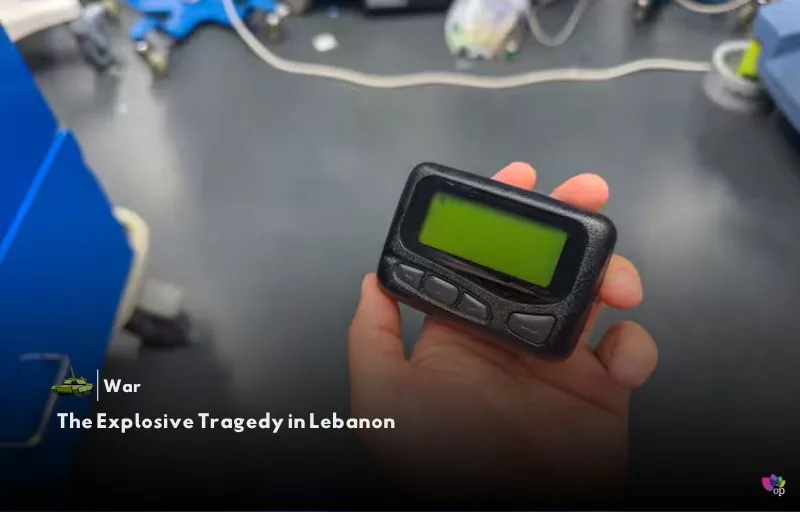Summary: A series of devastating explosions in Lebanon, linked to communication devices used by the militant group Hezbollah, has left the nation reeling. The tragic events resulted in significant loss of life, widespread injuries, and a climate of fear and distrust among the populace.
Report: In a shocking turn of events, Lebanon has been shaken by a sequence of explosive incidents that resulted in the deaths of at least 32 individuals, including two young children. These explosions, primarily triggered by communication devices associated with Hezbollah, not only caused immediate casualties but also sparked chaos and confusion among the crowds gathered in mourning.
The tragic sequence began on Tuesday when a coordinated attack involving pagers detonated simultaneously, killing 12 people and injuring nearly 3,000 others. Witnesses reported horrifying scenes as individuals around them began to experience sudden, violent eruptions. Eyewitness accounts described the initial blasts as sounding like fireworks or gunshots, leading to widespread panic.
In the aftermath of the first round of explosions, the situation worsened on Wednesday, when a new wave of blasts occurred around 5:00 PM local time. This time, walkie-talkies—reportedly purchased by Hezbollah just five months earlier—exploded near a funeral procession, resulting in 20 additional fatalities and injuring at least 450 people. The explosive devices were said to have received messages from Hezbollah’s leadership before triggering the detonation, creating a scenario that left many feeling unsafe even in the presence of their own communication devices.
Local health authorities faced overwhelming challenges as ambulances struggled to reach those in need amid the chaos. The gravity of the situation deepened, with the community becoming increasingly wary of anyone using a phone, leading to an atmosphere of suspicion and fear.
As investigations into the blasts unfolded, Hezbollah pointed fingers at its adversary, Israel, blaming it for the sophisticated attacks that seemed to target their members. Two foreign firms implicated in media reports—one from Taiwan and another from Hungary—swiftly denied any involvement, with Taiwan’s government asserting that the components of the pagers did not originate from their territory. Meanwhile, a Japanese company responsible for the walkie-talkies indicated that they had not manufactured that specific model for over a decade.
Analysis: The events in Lebanon highlight the precarious nature of security in a region fraught with political tension and historical grievances. The use of communication devices as instruments of tragedy not only underscores the escalating violence but also reflects the complex and often dangerous relationship between militant groups and technology.
The tragic explosions have exacerbated existing fears among the Lebanese populace, who are grappling with a profound sense of insecurity. In a society already burdened by economic challenges and political instability, the emergence of such incidents can easily undermine public trust in safety and security mechanisms. The mistrust towards technology, as seen in the local response to phone usage, indicates a societal shift where everyday items become associated with violence and danger.
Furthermore, the responsibility placed on foreign manufacturers and the allegations against Israel reflect the broader geopolitical tensions that continue to shape life in Lebanon. As the nation mourns the loss of life, the specter of suspicion looms large, raising questions about the effectiveness of national and international efforts to promote stability and security in the region.
In conclusion, the recent explosions serve as a stark reminder of the fragility of peace in Lebanon and the intricate interplay between technology, politics, and community safety. As investigations proceed, the need for comprehensive strategies to address not only the immediate threats but also the underlying issues that fuel such violence is more critical than ever.
References



Thank you, your article surprised me, there is such an excellent point of view. Thank you for sharing, I learned a lot.